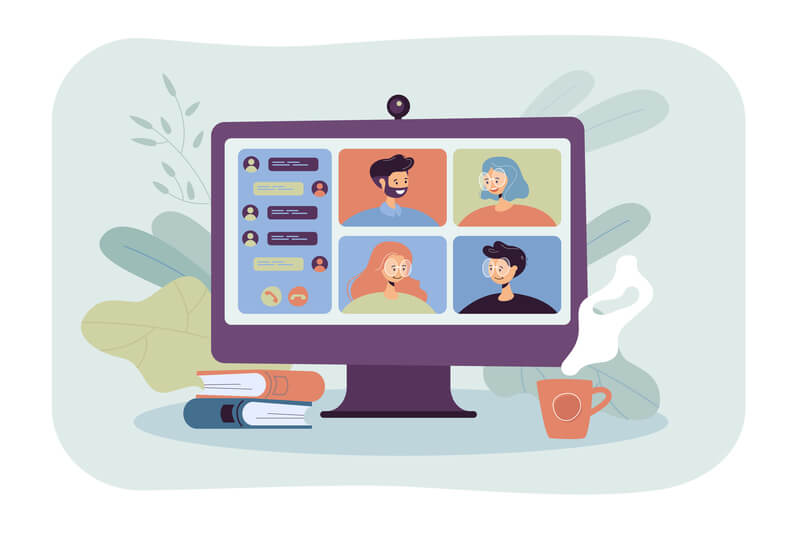
The beauty and power of digital transformation and the Internet - one could literally launch and run a business if there was the Internet and a laptop.
“The pandemic has prompted a surge in entrepreneurship, voluntary and involuntary.” ~ Kamala Harris
It seems like it was just yesterday that our world was gripped by the era-defining pandemic. In a blink of an eye, our lives were flipped upside down. Entrepreneurs across all industries scrambled to keep their businesses afloat. Entire industries such as the tourism and travel sector crumbled. And millions of people were left wondering where their uncertain future would eventually lead them. Over the next few months, as it became abundantly clear that life would never return to the “normal” we once knew, many people were forced to re-evaluate their careers. After all, job security was no longer on the table for anyone.
Up until this point I had always worked for a company. And like millions of people I wasn’t immune to the uncertainty the pandemic brought. I became a co-founder of a business quite unexpectedly. I really loved the brand for a longer time, so when I found out that the owner was looking for a buyer, I had an urge to get connected. Believe me or not, but I truly wanted to help the owner to find a good buyer. In the end, she offered me to become a co-owner, and so I came on board. I've never considered myself an entrepreneur, I felt happy with my corporate career and always felt I wasn't built to be a businesswoman. The experience of running a business became one of the most transformational in my life - handling financial responsibilities, making tough decisions about expenses and a lot more. I had to learn really fast because economic instability and COVID-19 push us to work harder and try a lot of new things.
This pivot, in fact, has accelerated my career in HR. Previously I was Head of HR for an online educational company, and I always felt there was something missing in my career. Don’t get me wrong, the experience was very rewarding. But in order to grow further, I needed more business and strategy competencies. Co-owning a business has opened new doors for me to experience this and much more.
In my personal entrepreneurial journey, COVID-19 was, more than anything, a call to go digital and move online. Our company has been designed around physical space that our customers could experience: open shop, large windows, wooden shelves. We are also located in the rehabilitated factory in the city centre. Being located there meant we'd have tourists, and other people visiting us. When COVID-19 hit, we understood there was an urgent need to change the business model. We moved the majority of sales to the web and started to expand into foreign markets. We worked harder than ever before to get new systems in place and adapt. We raced against time and carried out a lot of changes.
As I look back now at this journey, it might sound strange, but without this crisis, we would never grow so much. Possibilities are everywhere. In these moments I yet again witnessed the beauty and power of digital transformation and the Internet - one could literally launch and run a business if there was the Internet and a laptop.

Adapting to remote work has forced many to adopt digitalisation to make way for the “new normal”.
Of course, e-commerce is not an unknown thing. What about businesses and organisations that were now forced to adapt to digital remote work? What was considered unproductive, was now the new normal. Phrases like “let’s do a zoom call” became common phrases. And then there are other industries or jobs that have never been touched by digitalisation. I will never forget a story that my friend told me. The lady who was always selling fish on the streets of Singapore, started selling it via Facebook Live when the pandemic hit. And in this way, was able to keep her business afloat. And I’m pretty sure there are millions of stories like these around the world.
“When most international borders were closed, and international companies couldn’t import, it opened my eyes to the possibilities of local brands and products that were already at my doorstep.”
During this time, it wasn’t that big corporations pulled it off. It was small businesses that came through for us. When most international borders were closed, and international companies couldn’t import, it opened my eyes to the possibilities of local brands and products that were already at my doorstep. The same local brands that never had the same marketing budget as giant corporations. While it is certainly not our social responsibility to necessarily support local businesses, I think we have only to gain by exploring what our local producers, artists, farmers all have to offer.

Support small, local businesses to help sustain the economy and people’s livelihoods.
Many restaurants, bars, markets, small shops, concert halls, galleries, theatres, cinemas and other independent businesses have managed to stay alive so far, but everyone's financial, physical and mental reserves are limited. Once these reserves are gone, medicine, education, employment and GDP won't be able to recover without big help, and we will have a much larger burden to carry. Each of us has a chance to do something – for the favourite bookstore not to close, for the best nasi goreng maker to return to the market, the beloved band to give out the next album, the fantastic artist to make new exhibitions, the renowned film-maker to finish a movie, the festival with long traditions you like to happen again etc. I urge you all to consider supporting your cultural and lifestyle favourites without whom your future would be emotionally poorer. It might be too late to think about it later.
There were a lot of business closures over the last year. When the time gets hard you need to be creative. All of us must constantly reinvent ourselves. Opportunities are everywhere, notice them and embark on the reinvention journey. Every business can be transformed into an online one. Explore and embrace this journey for your company - no matter small or big. And lastly, do everything you can and within your capability to support your favourite businesses and people. Showing them support today means they will exist tomorrow.
About the Author

Marta Kondryn is an HR Executive with global activity and vast experience in Southeast Asia and Europe. In the past - Head of People and Culture at Mindvalley. Author of “HR Atlas: A Roadmap to Healthy Organisation For Start-ups, Small & Mid-Sized Businesses”, that became Amazon Bestseller in the category of HR in December 2020. She calls herself an accidental small business owner at ShufliaCrafts, where she gets to build her own sustainable manufacturing business and gain valuable business and strategy competencies. She aspires to also back other entrepreneurs around the world through venture capital.



